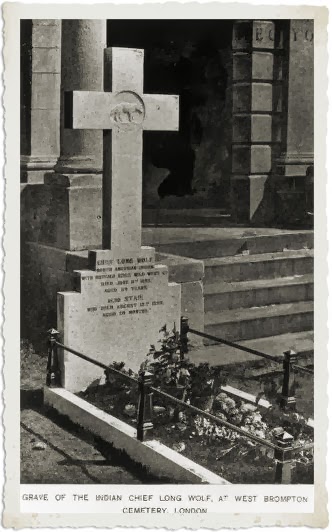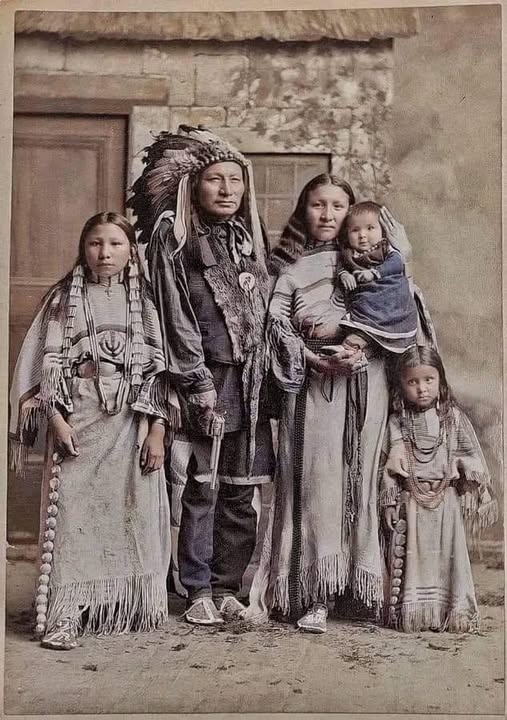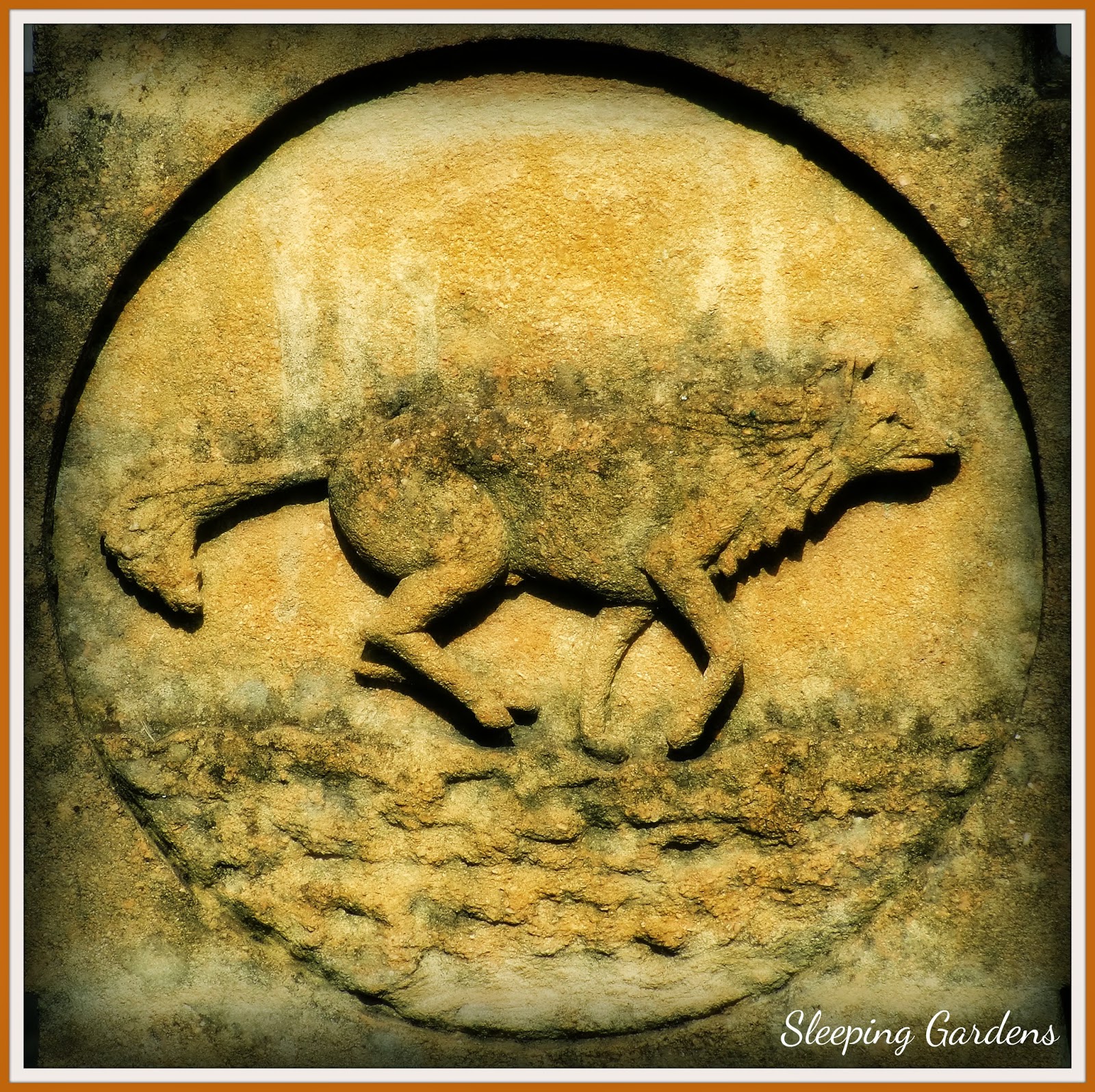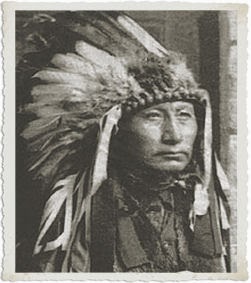The story of Sioux Chief Long Wolf, a man who traveled far from his ancestral lands only to find his final rest in a foreign soil, is a testament to the enduring power of compassion and the pursuit of justice. It’s a narrative that bridges continents and centuries, driven by the unwavering determination of an ordinary English homemaker.

The Discovery: Unearthing a Forgotten Legacy
Elizabeth Knight’s serendipitous discovery of Long Wolf’s story in an old book ignited a passion that would lead her on an extraordinary quest to honor a dying man’s wish.
An Accidental Historian: A Book and a Revelation
- Elizabeth Knight, a self-described “ordinary sort of person,” stumbled upon a 1923 story by R.B. Cunninghame Graham in a local market. This chance encounter would profoundly alter her life.
- The story painted a poignant picture of Long Wolf’s neglected grave in a London cemetery, a stark contrast to the vast, open plains of his homeland. The image of a Sioux chief, far from his people, resonated deeply with Knight.
- The starkness of Long Wolf’s fate, dying of bronchial pneumonia in a crowded, industrial London, fueled Knight’s sense of injustice and her desire to rectify a historical wrong.
A Neglected Grave: The Stark Reality of Loneliness


- Cunninghame Graham’s description of Long Wolf’s grave, “in a lone corner of a crowded London cemetery,” underscored the chief’s isolation and the indifference he faced in a foreign land.
- The “smoke-stained Greco-Roman colonnade” and “poplar tree” surrounding his grave highlighted the cultural chasm between his native traditions and the alien environment he found himself in.
- The image of the “howling image of his namesake” on the grave marker served as a poignant reminder of his lost identity and the longing for his ancestral home.
A Transatlantic Quest: The Beginning of a Mission
- Knight’s initial curiosity quickly evolved into a determined mission to return Long Wolf’s remains to his people. She was moved by the chief’s plight and the injustice of his final resting place.
- Despite her lack of formal training or resources, she embarked on a journey of research and advocacy, driven by a deep sense of moral obligation.
- This seemingly impossible task, undertaken by an “ordinary” person, highlighted the extraordinary power of empathy and the potential for individuals to effect change.
The Pursuit of Justice: Piecing Together a Lost History
Knight’s relentless pursuit of information and her unwavering determination to connect with Long Wolf’s descendants revealed the complexities of historical reconciliation.
Unraveling the Past: A Detective’s Dedication
- Knight’s investigation required her to delve into historical records, letters, and accounts, piecing together the fragmented story of Long Wolf’s journey and his final days.
- She meticulously researched the circumstances surrounding his death, the details of his burial, and the history of Buffalo Bill’s Wild West show, which had brought him to England.
- Her efforts transformed her into a historian and detective, driven by a desire to uncover the truth and honor Long Wolf’s memory.
Connecting Across Cultures: Bridging a Historical Divide

- Knight’s quest required her to bridge cultural and geographical divides, reaching out to Native American communities and historical societies in the United States.
- She faced numerous challenges, including language barriers, logistical hurdles, and the complexities of historical research.
- Her persistence in connecting with Long Wolf’s descendants and the wider Native American community demonstrated her commitment to cultural sensitivity and respect.
A Shared Legacy: The Power of Reconciliation

- Knight’s efforts fostered a sense of collaboration and reconciliation between the British and Native American communities, highlighting the shared humanity that transcends cultural differences.
- Her work served as a catalyst for dialogue and understanding, promoting awareness of the historical injustices faced by Native Americans.
- The eventual return of Long Wolf’s remains symbolized a step towards healing and acknowledging the past, fostering a sense of closure for his descendants.
The Return: Fulfilling a Dying Wish
The culmination of Knight’s efforts, the return of Long Wolf’s remains to his ancestral home, represented a triumph of compassion and a testament to the enduring power of human connection.
A Symbolic Journey: Honoring a Final Request
- The repatriation of Long Wolf’s remains fulfilled his dying wish to return to his homeland, a request that had gone unfulfilled for over a century.
- This act of repatriation symbolized a recognition of his cultural identity and a respect for his spiritual beliefs.
- The journey home was not just a physical movement of remains; it was a symbolic journey of healing and reconciliation.
A Legacy of Compassion: The Enduring Impact

- Knight’s story serves as an inspiration, demonstrating the profound impact that ordinary individuals can have on historical narratives.
- Her dedication to honoring Long Wolf’s memory highlights the importance of empathy and the power of human connection.
- The legacy of her quest extends beyond the return of remains, fostering a greater understanding of Native American history and culture.
The Triumph of Empathy: A Lasting Remembrance
- The story of Long Wolf’s return is a testament to the enduring power of compassion and the ability of individuals to right historical wrongs.
- Elizabeth Knight’s unwavering dedication transformed a forgotten grave into a symbol of reconciliation and remembrance.
- The tale of her journey serves as a powerful reminder that even the most seemingly insurmountable challenges can be overcome by empathy, determination, and a belief in justice.
